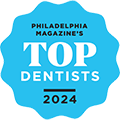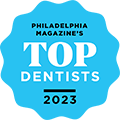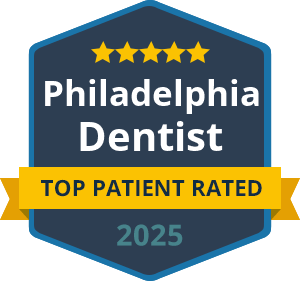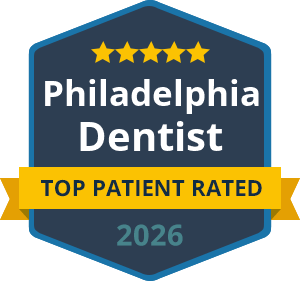
As parents, we want the best for our children’s smiles, and sometimes that includes considering orthodontic treatment at a young age. At The Pediatric Dental Team, one question we frequently hear from concerned parents is: “Can braces be put on baby teeth?” The answer might surprise you—yes, but only in very specific circumstances.
When Braces on Baby Teeth Make Sense
While it’s uncommon, there are situations where orthodontic treatment on primary (baby) teeth is not only possible but recommended. Here are the main scenarios:
Space Maintenance
If your child loses a baby tooth prematurely due to decay or injury, the surrounding teeth may shift into that space. This can prevent the adult tooth from erupting properly. In these cases, we might use a space maintainer, which is a specialized orthodontic appliance that keeps the space open for the permanent tooth.
Severe Crowding or Crossbites
When baby teeth are severely crowded or your child has a significant crossbite that could affect jaw development, early intervention might be necessary. Addressing these issues while the jaw is still growing can prevent more complex problems later.
Habits That Affect Development
If your child has persistent thumb sucking, finger sucking, or prolonged pacifier use that’s causing the teeth to shift significantly, orthodontic intervention might be recommended alongside breaking these habits.
Why Braces Are Usually Avoided on Baby Teeth
In most cases, orthodontists and pediatric dentists prefer to wait until permanent teeth begin to emerge. Here’s why:
Baby Teeth Are Temporary
Since primary teeth will naturally fall out between ages 6-12, putting braces on teeth that are meant to be lost doesn’t usually make sense from a treatment standpoint.
Root Resorption
As permanent teeth develop underneath, the roots of baby teeth naturally dissolve. This process, called resorption, can make baby teeth unstable and unsuitable for orthodontic movement.
Cost and Practicality
Traditional braces on baby teeth that will soon be lost represent an unnecessary expense for most families, especially when the same issues can often be addressed more effectively once permanent teeth are present.
Comfort Concerns
Young children may have difficulty adapting to braces, and the discomfort might outweigh the benefits when the treatment is on temporary teeth.
The Ideal Time for Orthodontic Treatment
The American Association of Orthodontists recommends that children have their first orthodontic evaluation by age 7. This doesn’t mean treatment will start immediately, but it allows us to:
- Monitor jaw development and tooth eruption patterns
- Identify potential problems early
- Determine the optimal timing for intervention
- Create a treatment plan that works with your child’s natural development
Phase I vs. Phase II Treatment
When early orthodontic intervention is needed, it’s often called “Phase I” or interceptive treatment. This might involve:
- Palatal expanders to widen the upper jaw
- Space maintainers to preserve space for permanent teeth
- Partial braces on just a few teeth to address specific issues
- Functional appliances to guide jaw growth
Phase II treatment typically begins once most permanent teeth have erupted, usually between ages 11-13.
Signs Your Child Might Need Early Orthodontic Evaluation
Watch for these indicators that suggest an orthodontic consultation might be helpful:
- Early or late loss of baby teeth
- Difficulty chewing or biting
- Mouth breathing or snoring
- Thumb sucking beyond age 5
- Crowded, misplaced, or blocked-out teeth
- Jaws that shift when opening or closing
- Speech difficulties
- Teeth that don’t come together normally
What to Expect During an Orthodontic Consultation
If we recommend an orthodontic evaluation for your child, here’s what typically happens:
- Comprehensive examination of teeth, jaw, and bite
- Discussion of concerns and treatment goals
- Review of options including timing of treatment
- Development of a treatment plan if intervention is needed
- Cost discussion and insurance considerations
Making the Right Decision for Your Child
Every child’s situation is unique, and what works for one family might not be right for another. Factors to consider include:
- Severity of the orthodontic issue
- Your child’s maturity level and ability to care for appliances
- Financial considerations and insurance coverage
- Impact on daily activities like eating and speaking
- Long-term benefits versus immediate inconvenience
Supporting Your Child Through Early Orthodontic Treatment
If early orthodontic treatment is recommended, here are ways to help your child succeed:
- Maintain excellent oral hygiene with specialized brushes and tools
- Follow dietary restrictions to protect appliances
- Keep regular appointments for adjustments and monitoring
- Encourage patience as treatment takes time to show results
- Celebrate milestones to keep your child motivated
The Bottom Line
While braces can technically be placed on baby teeth, it’s rarely the best course of action. Most orthodontic issues are better addressed once permanent teeth begin to emerge. However, there are specific situations where early intervention on primary teeth can prevent more serious problems and set the stage for successful treatment later.
At The Pediatric Dental Team, we work closely with orthodontic specialists to ensure your child receives the right treatment at the right time. Our goal is to help every child achieve a healthy, beautiful smile that lasts a lifetime.
Ready to Learn More?
If you have concerns about your child’s teeth alignment or bite, we encourage you to schedule a consultation. Our experienced team can evaluate your child’s unique situation and provide personalized recommendations for their orthodontic journey.
Remember, early evaluation doesn’t always mean early treatment—but it does mean early peace of mind for parents and the best possible outcomes for children. Together, we can help your child develop the confidence that comes with a healthy, beautiful smile.
Posted on behalf of
2010 South Juniper Street
Philadelphia, PA 19148
Phone: 215-334-3490
Mon: 8:00AM – 4:30PM
Tues: 8:00AM – 4:30PM
Wed: 8:00AM – 4:30PM
Thu: 8:00AM – 4:30PM
Fri: 8:00AM – 1:00PM









